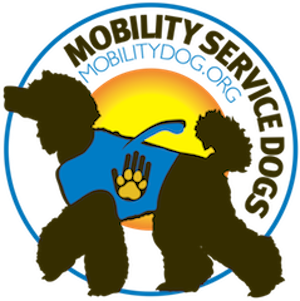Can Old Dogs Learn New Tricks?
A Senior Chocolate Labrador Dog (Courtesy: Pixabay.com/RitaE)
This question is posed as often for humans (metaphorically), as it is for our canines.
Can Grandma learn to download an app, add a printer to her laptop menu or change the settings on her smartphone?
Similarly, can your older pooch learn novel behaviors after a lifetime of becoming accustomed to a specific, oft-repeated and possibly limited set of commands?
Brain Plasticity
A Dog’s Brain (Courtesy: Pixabay.com/Katja)
The answer, for both your granny and your senior dog, is “yes.” Physicians and brain scientists tell us old folks to continue challenging our brains, regardless of age by doing puzzles, taking up art, learning a language or writing a memoir. These are all examples of activities that contribute to neural plasticity (the ability of the nervous system to reorganize itself in response to intrinsic or extrinsic stimuli).
Human (and canine) brains are not inert blobs – they change when called upon to learn new skills, even after a lifetime of programming. Among the most powerful forces for rearchitecting the gray matter are intellectual challenges – games, tests, puzzles, for example – that stretch current cognitive skills and stimulate new neural connections.
Feeling Good about Learning
Successfully solving problems makes humans feel good. Additionally, scientists who have studied dogs’ responses to learning and demonstrating performance concur that dogs feel similarly. Achievement produces a positive experience. Moreover, both humans and non-humans prefer to work for their rewards, rather than receiving benefits for free. When an animal controls access to a reward through the execution of an operative task, positive affect (i.e., feeling good) rises. In the words of one research team, “… opportunities to solve problems, make decisions, and exercise cognitive skills are important to an animal’s emotional experiences and ultimately, their welfare.” This goes for older dogs as well as their youthful counterparts. In fact, aging in canines appears to be slowed by mental and physical stimulation (same with people).
Experimenting with Computer Touchscreens
A group of European scientists used Vienna Comparative Cognition Technology (VCCT) to create a cognitive challenge adapted to senior pet dogs. With a touchscreen and a connected food dispenser, the experimenters were able to train a group of older pet dogs to contact a specific screen icon to receive a treat. The dogs were also trained to discriminate between icons, learning which would yield a reward and which would not. Out of 130 dogs aged six or older, only two failed the training.
Some owners came to refer to their dogs as “computer geeks” and were quick to express their belief that the dogs enjoyed participating in the study. Indeed, the positive association with the touchscreen was so strong that, on several occasions when the dog was alone (the trainer having stepped outside to take a telephone call) and the feeder failed, the dog continued to work on the touchscreen even with no immediate food reward.
Don’t Give Up on the mature Pups
A Senior Pug Being Held and Petted (Courtesy: Pixabay.com/winterseitler)
It is never too late to teach dogs new behaviors. Eager puppies with blank slates in their head will of course learn quickly, but older animals can also expand their behavioral repertoires. Indeed, for mature dogs, new learning experiences help build the bond with their human companions. Dogs that have been with a family since puppyhood relish the time spent with their owners in novel activities, and learning is a fun activity for them, even as they age.
Ultimately, animal welfare must be a primary concern as we deal with our aging pets. Well-being, however, is not merely the absence of pain and suffering. It also encompasses the presence of positive feelings and rewarding experiences. Enriching the lives of our canine companions means promoting play, providing opportunities to collect information about the world around them, and experiencing positive emotions associated with overcoming challenges. These are essential to giving the pups we love the longest possible span of high-quality years.



